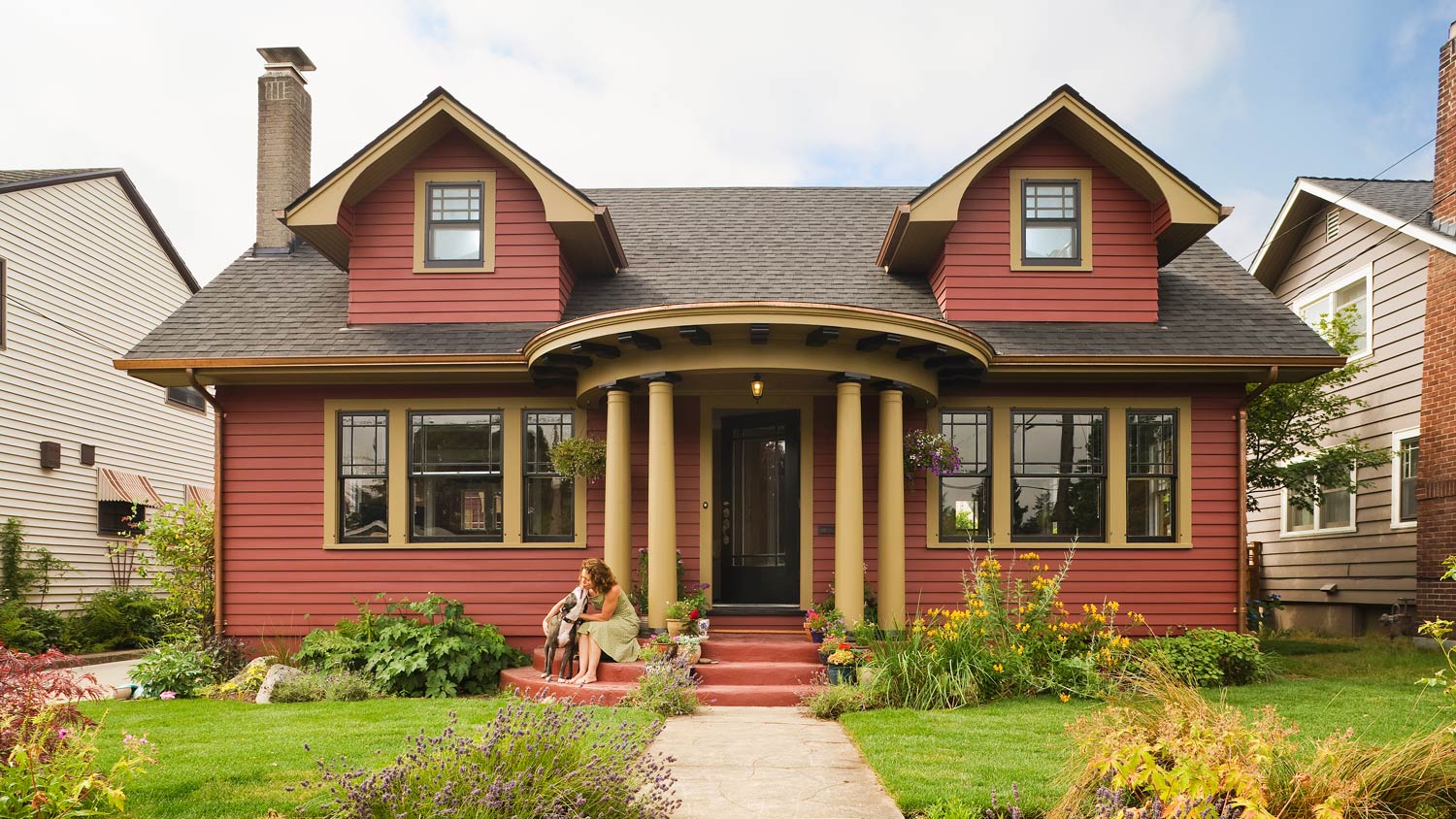
Get matched with top masons in Rodney, MI
There are 1 highly-rated local masons.
Verified Reviews for Masonry Work pros in Rodney, MI
*The Angi rating for Masonry Work companies in Rodney, MI is a rating based on verified reviews from our community of homeowners who have used these pros to meet their Masonry Work needs.
*The HomeAdvisor rating for Masonry Work companies in Rodney, MI is a rating based on verified reviews from our community of homeowners who have used these pros to meet their Masonry Work needs.
Last update on May 02, 2025
Masons in Rodney

Acculevel is your foundation repair expert, serving Indiana, Illinois, Michigan, Kentucky, and Ohio with over 20 years of experience. Our repairs come with a lifetime warranty. Acculevel begins by evaluating your entire foundation system, checking your property for the signs and causes of foundation failure. From foundation & crawlspace repair to waterproofing & encapsulation systems, Acculevel can help you protect your home-- the most valuable investment you'll ever make.
"Did a great job. Appreciate the knowledge and information"
Sharon B on November 2024
Acculevel is your foundation repair expert, serving Indiana, Illinois, Michigan, Kentucky, and Ohio with over 20 years of experience. Our repairs come with a lifetime warranty. Acculevel begins by evaluating your entire foundation system, checking your property for the signs and causes of foundation failure. From foundation & crawlspace repair to waterproofing & encapsulation systems, Acculevel can help you protect your home-- the most valuable investment you'll ever make.
"Did a great job. Appreciate the knowledge and information"
Sharon B on November 2024
Here at Logan Griffes Construction LLC we provide a wide range of services across the construction landscape. These include but are not limited to, rough framing of structures, garages, houses, and pole barns. To high end finish work including drywall, painting, tile, flooring, kitchens and bathrooms. With multiple years of experience throughout the crew we are proud to provide a high quality of work while taking your project to the next level.
"Perfect! The Logan Griffes Construction crew was exceptional in their work and attitude"
Gus H on January 2024
Here at Logan Griffes Construction LLC we provide a wide range of services across the construction landscape. These include but are not limited to, rough framing of structures, garages, houses, and pole barns. To high end finish work including drywall, painting, tile, flooring, kitchens and bathrooms. With multiple years of experience throughout the crew we are proud to provide a high quality of work while taking your project to the next level.
"Perfect! The Logan Griffes Construction crew was exceptional in their work and attitude"
Gus H on January 2024
We are general contractors offering exterior & interior remodel / Renovation services along with new construction services. We aim to offer a high quality product with exceptional customer service. Let us put our 20+ years experience to work for you.
We are general contractors offering exterior & interior remodel / Renovation services along with new construction services. We aim to offer a high quality product with exceptional customer service. Let us put our 20+ years experience to work for you.
We have a great crew that knows how to get work done in a timely matter. We also subcontract work out when we are busy Ower bill is depending on the size of the job half down balance at the end or if its a large job then we will split it in quarter payments
We have a great crew that knows how to get work done in a timely matter. We also subcontract work out when we are busy Ower bill is depending on the size of the job half down balance at the end or if its a large job then we will split it in quarter payments
Foundation Specialist is a basement waterproofing, foundation repair, and crawl space waterproofing company which serves homeowners in the Western Michigan area. Regardless of what kind of home problem you may be experiencing - from wet basements to leaky crawl spaces - we have you covered. Our trained, knowledgeable, friendly, and professional team of experts will be more than happy to assist you with your basement, foundation, or crawl space problems.
"Made my problem worse; said they would do one thing does something completly different. Won't resolve problem once paid they don't they act like you don't matter. Think twice"
casey r on July 2024
Foundation Specialist is a basement waterproofing, foundation repair, and crawl space waterproofing company which serves homeowners in the Western Michigan area. Regardless of what kind of home problem you may be experiencing - from wet basements to leaky crawl spaces - we have you covered. Our trained, knowledgeable, friendly, and professional team of experts will be more than happy to assist you with your basement, foundation, or crawl space problems.
"Made my problem worse; said they would do one thing does something completly different. Won't resolve problem once paid they don't they act like you don't matter. Think twice"
casey r on July 2024
Mid Michigan's Concrete Contractors
Mid Michigan's Concrete Contractors
With over 25yrs of professional masonry experience, we specialize in concrete, masonry installations and in stone foundation repairs throughout the entire state of Michigan. We work on old field stone foundations dating back to the early 1800's. We use and perform high quality solutions that last for generations to come. We offer "Free Estimates" feel free to contact us today, we look forward to servicing you!
"Joe did an excellent job everything went smooth. He is very creative on the way he lays out the front porch, sidewalk and patio. It turned out better than I ever imagined it. Definitely would hire him on my next project."
Robert B on February 2022
With over 25yrs of professional masonry experience, we specialize in concrete, masonry installations and in stone foundation repairs throughout the entire state of Michigan. We work on old field stone foundations dating back to the early 1800's. We use and perform high quality solutions that last for generations to come. We offer "Free Estimates" feel free to contact us today, we look forward to servicing you!
"Joe did an excellent job everything went smooth. He is very creative on the way he lays out the front porch, sidewalk and patio. It turned out better than I ever imagined it. Definitely would hire him on my next project."
Robert B on February 2022
Im a sub-contracting Im willing to work with anyone on the larbor. Like to be paid for materials up front.
Im a sub-contracting Im willing to work with anyone on the larbor. Like to be paid for materials up front.
Spanky's has multipal service technicians available to service all your housing needs fom ground to sky. We also have larger crews for those larger projects like getting that new roof. Most jobs only take one day. Pricing is extremly competative in all areas.
Spanky's has multipal service technicians available to service all your housing needs fom ground to sky. We also have larger crews for those larger projects like getting that new roof. Most jobs only take one day. Pricing is extremly competative in all areas.
Family owned & operated.
Family owned & operated.
Masonry services FAQs
Masonry uses units like bricks, cement blocks, and stone with mortar between them. Mortar is generally made of sand and a type of cement. Examples of masonry include the brick or stone on a house, chimney, or freestanding wall. Concrete is a mixture of water, sand, stone aggregate, and other materials, and is poured into forms or moldings. Types of concrete applications include driveways, garage and basement floors, and poured concrete walls in basements and crawl spaces.
The cost of masonry work varies widely depending on the type of masonry along with common cost factors like size, complexity, location, and season. Most exterior masonry work done in freezing temperatures tends to cost more because of the preparation and protection involved to keep the masonry from freezing before the mortar cures properly. The average price ranges per project or square foot for different types of masonry include:
Brick wall (fence, garden wall, etc.): $10–$45 per square foot
Natural stone wall: $40–$110 per square foot
Manufactured stone veneer: $20–$40 per square foot
Brick home exterior: $10–$30 per square foot
Brick siding: $3–$10 per square foot
Stone siding: $35–$50 per square foot
Brick step replacement: $20–$30 per square foot
Brick wall repair: $20–$40 per square foot
Chimney repairs: $160–$750 per project
Tuckpointing: $5–$25 per square foot
A mason lays brick or stone together, sometimes with mortar in between the bricks and stones, and sometimes without mortar, also called a dry-stack or surface bonding. Examples of work masons do include:
Brick, stone, or cement block houses and buildings
Freestanding stone or brick walls
Chimneys with wood-burning fireplaces
Cement block basement or crawl space walls
Masonry work tends to be more expensive because the materials can be costly, such as natural stone and brick. Masonry is also very labor intensive, typically making up 50% or more of the final project cost. In addition, quality masonry work requires years of training and experience, as with any skilled trade.
Two types of masonry are veneer masonry and solid masonry. Veneer masonry is thin brick or stone material attached to the face of a building. With veneer masonry, the walls support the weight of the masonry products rather than the masonry being built on a concrete footing. Solid masonry is a wall or other brick or stone structure built on a concrete footing, and the masonry supports itself.















